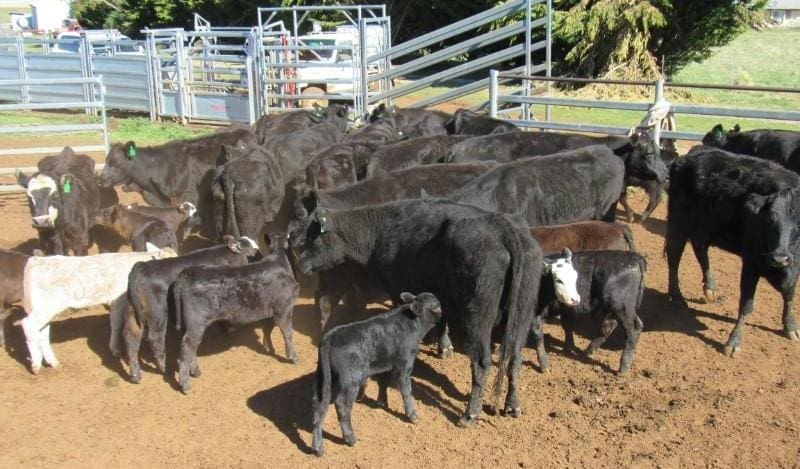
AS THE beef industry faces increasing pressure to reduce methane emissions, a New South Wales producer has been looking into some practical ways of reducing footprint by managing cows in a commercial operation.
Plenty of options are starting to arise in the world of methane reduction – including seaweed supplements and carbon farming to offset emissions. But herd efficiency is also an important part.
Stud and commercial producer Jon Wright presented to the third session of Meat & Livestock Australia’s ‘carbon accounting for Australian pasture systems’ webinar series last week.
While Mr Wright is well known for his work on efficient feed conversion, he presented a series of ways to manage females for emissions reduction.
“Any management technique that will reduce herd intake, without reducing production, will go towards reducing methane output,” he said.
“There are two sides to reducing herd emissions with cows, one is by accessing genetics that gives us smaller cows and the other is about fat how the cows are.
“We do everything we can to stop our cows eating more than they need to. We know a cow will eat 2.5pc of her bodyweight if you let her, but she will maintain her bodyweight and pregnancy if you feed her half that. Joining 450kg heifers is a waste of money and a waste of methane.”
Mr Wright said his cow herd centred around a rotational grazing system, which contributed to reducing the amount of feed intake.
“We have our pregnant females following our production stock as they are rotating through the paddocks,” he said.
“That high density grazing creates a manuring effect, which does stop the cows from eating. We see it all the time with large numbers of cows in small paddocks where they are walking around trying look in-between the manure and urine for grass.
“Another interesting thought on reducing intakes on cows is one-way gates on water points, where they come in for a drink in the morning and they are not allowed out for a period of time.”
The “no cow herd”
Mr Wright said a concept called the “no cow herd” was coming into the conversation when it came to reducing methane.
“It came out of America a long time ago and hasn’t been talked about much since,” he said.
“Basically, it means all heifers are artificially inseminated with sexed semen to produce a heifer calf, those heifers give birth to their calves, wean their calves, then they are fattened.”
Mr Wright said the idea was to take out the feed cost of keeping cows in a herd – and ultimately reducing emissions.
“The heifers going to market are still young females, with young teeth, and they are still going to get top dollar,” he said.
“It would mean buying in some replacement heifers each year, but the idea is to reduce the feed cost of keeping the cow.”
Reducing methane key to beef’s image
With companies and government setting targets to reduce emissions and the industry facing pressure to reduce emissions, Mr Wright said the entire industry needed to take responsibility.
“In beef production 90pc of the emissions are happening on farm and it is too much to ask commercial producers to take responsibility for all of those emissions,” he said.
“So we are constantly asking the rest of the operators in the chain, which includes the seedstock industry, the processors and feedlots to give us clear market signals that will help farmers reduce their emissions.
“I can’t see us getting a premium for our product if we reduce emissions, but we will potentially have people walk away from our product in droves if we do not communicate that we are taking it seriously.”
